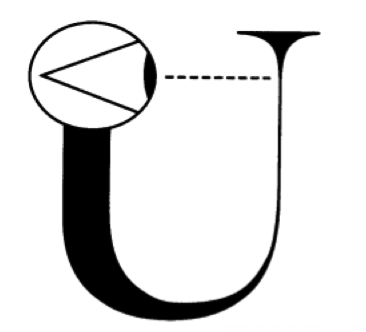I have noticed that in times I’m feeling down, reading or listening to Alan Watts makes me happy again. Why? His deep bellowing laugh and sense of humour? Maybe that’s part of it. But really it’s his philosophy, it just “clicks” with me. It makes me feel good. Life is a game, says Watts. When I hear his words the dramas of my ego disappear into the cosmic drama I’m a playing. I remember that everything I know and think, is just a question of how I am looking at it.
In his book The Meaning of Happiness, Watts recaps the two most common types of books on happiness:
- those that tell us how to become happy by changing our circumstances
- those that tell us how to become happy by changing ourselves
His book falls into neither of these two categories: ‘it is possible in a certain sense to become happy without doing anything about it.’ [1] Watts explains that he sees happiness as ‘not a result to be attained through action, but a fact to be realized through knowledge. The sphere of action is to express it, not to gain it.’ [2]
Happiness, says Watts, starts with total acceptance: a ‘yes-saying to everything that we experience, the unreserved acceptance of what we are, of what we feel and know at this and every moment.’ [3]
It is only when you seek it that you lose it... Like your shadow, the more you chase it, the more it runs away. [4]
Life and happiness is ‘unusually complicated because in fact it is unusually simple; its solution lies so close to us and is so self-evident that we have the greatest difficulty in seeing it, and we must complicate it in order to bring it into focus and be able to discuss it at all. This may seem a terrible paradox, but it is said that a paradox is only a truth standing on its head to attract attention… Nothing could be more obvious and self-evident than a man’s own face; but oddly enough he cannot see it at all unless he introduces the complication of a mirror, which shows it to him reversed. The image he sees is his face and yet it is not his face, and this is a form of paradox.’ [5]
In The Nature of Consciousness Watts explains that in his philosophy ‘there is no difference between the physical and the spiritual. These are absolutely out-of-date categories. It’s all process; it isn’t ‘stuff’ on the one hand and ‘form’ on the other. It’s just pattern— life is pattern. It is a dance of energy. And so I will never invoke spooky knowledge. That is, that I’ve had a private revelation or that I have sensory vibrations going on a plane which you don’t have. Everything is standing right out in the open, it’s just a question of how you look at it.‘
[youtube]http://www.youtube.com/watch?v=29atSZKbmS4[/youtube]
We are expressions of The Transcendent playing a game of hide and seek with Itself:
‘You have seen that the universe is at root a magical illusion and a fabulous game, and that there is no separate “you” to get something out of it, as if life were a bank to be robbed. The only real “you” is the one that comes and goes, manifests and withdraws itself eternally in and as every conscious being. For “you” is the universe looking at itself from billions of points of view, points that come and go so that the vision is forever new.’ [6]

Thank you SO much for posting this. I have been having a hard time with life the past few months; depression, loss of my job, beginning a new career, beginning a new relationship only to have it end abruptly etc… Today, Christmas of 2012, I have been sad but after reading this, I have realized my need to “lighten up.” It’s just another day. I love Alan Watts and have been reading and listening to him for a couple of years now. – Chris
Accept your self, just as you are.
Accept the world, just as it is.
See the connections.
Live. Die. Hide. Seek.
Don’t chase happiness, express it.
Life is a game, have fun with it.
Participate. Play.
Is this your quote? I absolutely love it.
Thanks Alexander! Very much Watts-inspired, but I believe I put them together 🙂